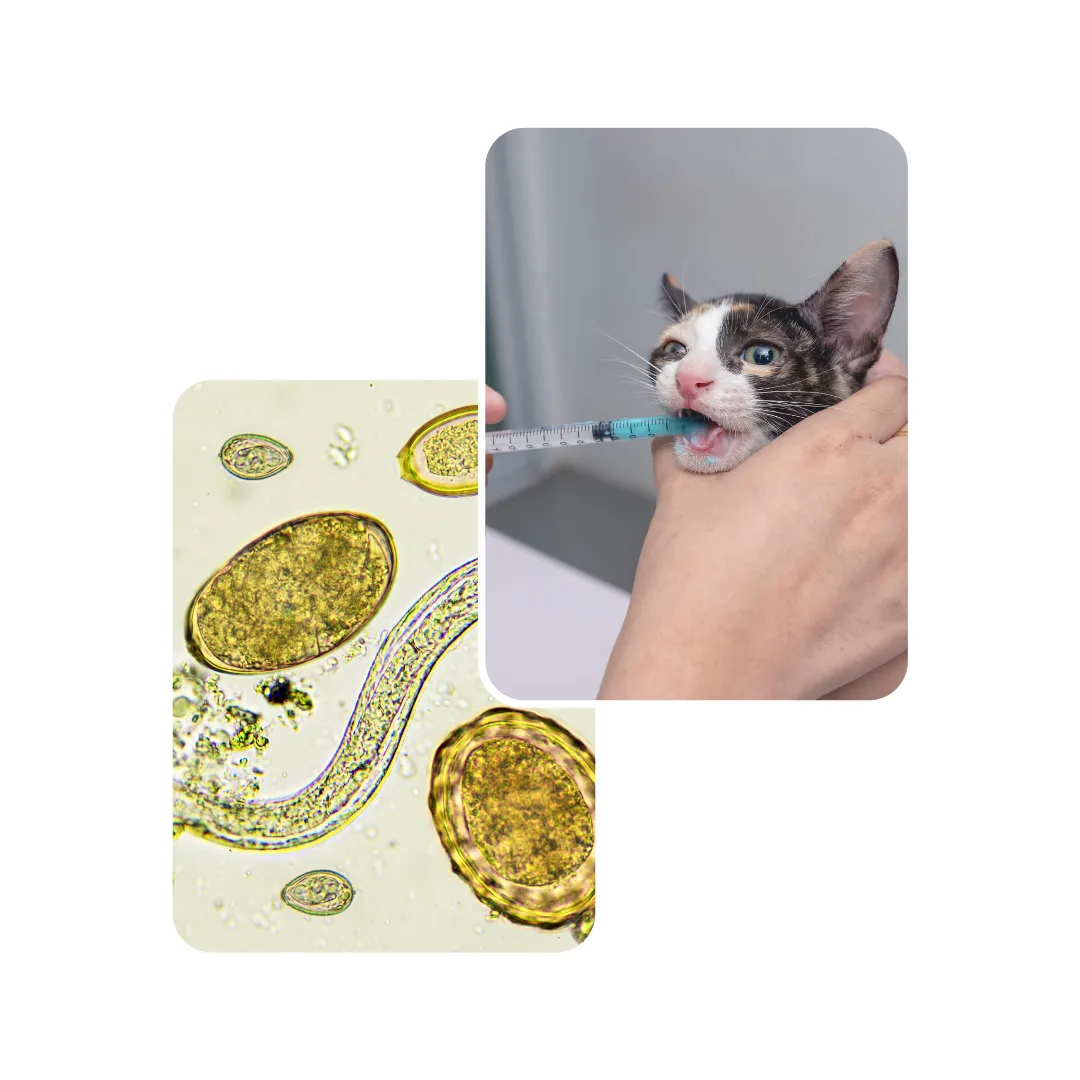
Cats can pick up worms from a variety of sources. Outdoor cats may get them by hunting rodents, birds or insects. Indoor cats can still be exposed through contaminated food, fleas, soil or even from humans carrying parasite eggs inside the house. Kittens are especially vulnerable, as they can inherit worms from their mother’s milk. Without regular cat deworm treatments, worms multiply and cause serious health issues, ranging from mild stomach upset to life-threatening anemia.

You may notice worms in your cat’s stool, vomit or around the anus. Tapeworms often appear as rice-like pieces, while roundworms may be long and spaghetti-like.
Worms irritate the digestive tract, leading to vomiting, loose stool or diarrhea with mucus. Some cats may even vomit whole worms.
A cat with worms often has fur that looks dry, rough or less shiny. This happens because worms drain nutrients like protein and vitamins.
Kittens with worms often have a swollen, round stomach even though the rest of their body looks thin. This “pot-bellied” appearance is a classic sign of roundworms.
Worms steal nutrients, so cats can eat normally but still lose weight. Over time, this can weaken their immune system and cause a dull coat.
A sign of lungworm infection. Cats may wheeze, cough or breathe heavily, which can be mistaken for asthma.
Cat deworming is a treatment that removes worms from your cat’s body. It’s done using safe medication that kills parasites living in the intestines or other organs.
Cats can get worms from hunting, fleas, contaminated soil or even from their mother when nursing. Indoor cats are also at risk because parasite eggs can be carried into the home.
Kittens usually need deworming every 2–3 weeks until 3 months old, then monthly until 6 months. Adult cats should be dewormed every 3–6 months, depending on lifestyle.
Untreated worms can cause weight loss, anemia, diarrhea, and even death in severe cases. Some worms can also infect humans, making prevention very important.
Yes. Modern deworm medications are safe and effective when given at the right dose. Your vet will choose the correct product for your cat’s age and condition.
Simply click the Appointment button or call our clinic. Regular deworming keeps your cat healthy and protects your whole household.
Simply click the Appointment button on our website or call us directly. Online booking saves you time and ensures your cat gets.
Your pet deserves expert care – Subscribe now for trusted tips and updates from our pet experts.
